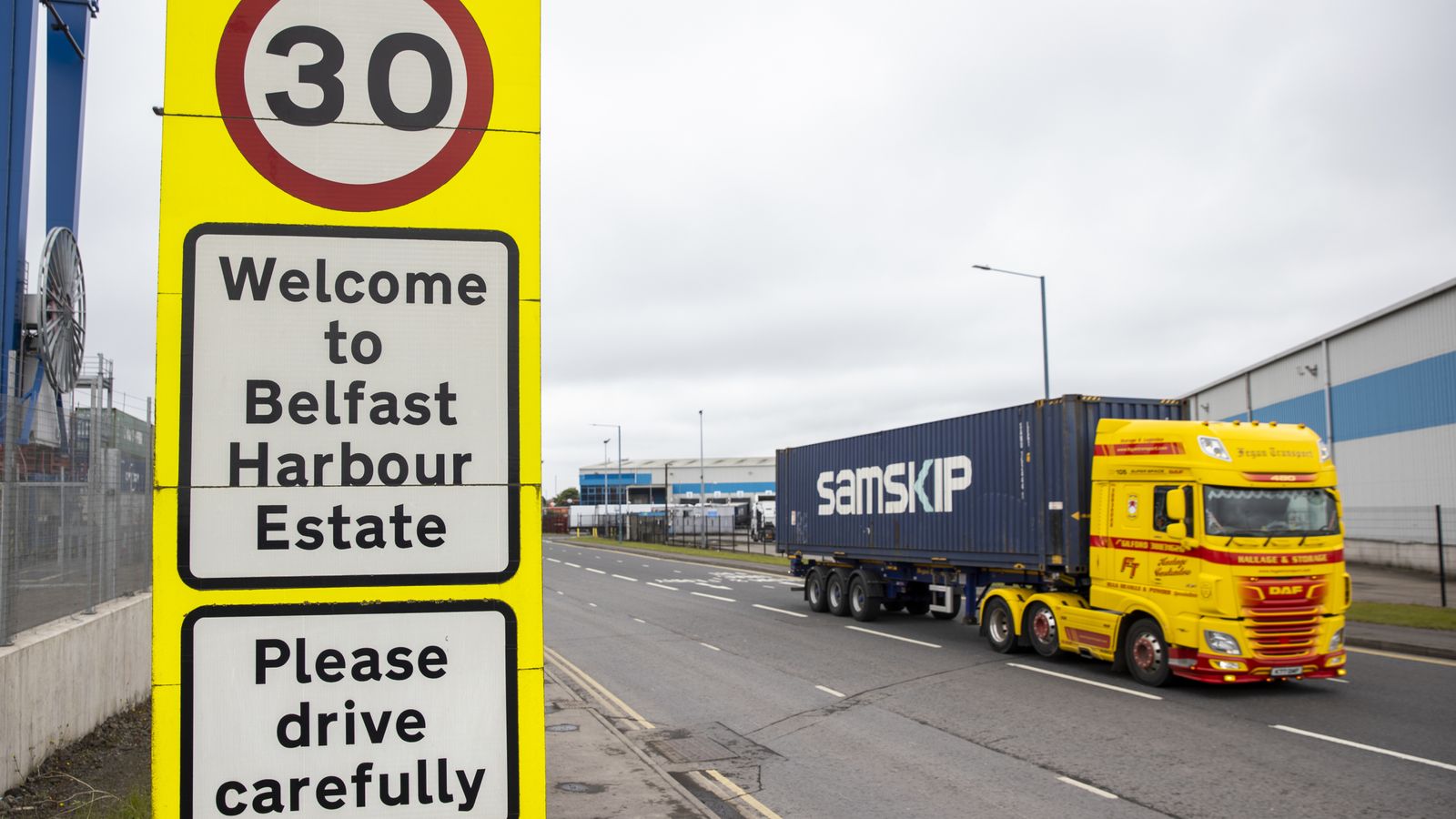Windsor Framework Stormont brake: MPs set to vote on first part of new Brexit deal for Northern Ireland

MPs are set to vote on the first part of the government’s new Brexit deal for Northern Ireland.
The Windsor Framework was agreed by Rishi Sunak and European Commission President Ursula von der Leyen on 27 February to change the way the Northern Ireland Protocol operates.
But before the new agreement can be implemented it will go to a vote of all MPs.
The first vote on the Windsor Framework will take place on Wednesday afternoon when MPs will decide whether they want to back the Stormont brake or not.
What is the Stormont brake?
• 30 members of the Northern Ireland Assembly from at least two political parties will be able to object to some updated or amended EU laws that would have applied automatically in Northern Ireland under the existing Protocol
• The UK government would then be able to block the adoption of that law and if the EU disagrees there would be a process of arbitration
• New legislation will have to be introduced by the government to implement the Stormont brake so it must go to a vote by MPs
The government has said the debate on Wednesday followed by a vote on passing the new law will serve as parliament’s opportunity to show approval for the framework as a whole.
But, it has proved to be the most politically significant part of the Windsor Framework, with the DUP and a handful of Tory MPs saying they will vote against it.
Labour, the SNP and the Lib Dems have said they will support the brake.
Please use Chrome browser for a more accessible video player
0:30
ERG: ‘Stormont brake is practically useless’
DUP: ‘Fundamental problems’
DUP leader Sir Jeffrey Donaldson said while the Windsor Framework represented “significant progress” in addressing concerns with the Northern Ireland Protocol, the Stormont brake does not deal with some of the “fundamental problems at the heart of our current difficulties”.
He said the DUP’s eight MPs had “unanimously agreed” to vote against it because of “ongoing concerns”, including that it does not meet the party’s seven tests.
On Monday night, former trade minister Sir James Duddridge became the first Tory MP to say he will vote against the Stormont brake as he believes it is a “betrayal of Brexit”.
He told Sky News he believes other Brexit-supporting backbenchers might join his rebellion, including Tory MPs such as John Redwood, Mark Francois, Bill Cash and David Jones.
Jacob Rees-Mogg told GB News on the eve of the vote he will “not find it possible” to support it.
On Tuesday, the Brexit-backing European Research Group (ERG) of Tory MPs labelled the Stormont brake “practically useless” following a verdict by a so-called “Star Chamber” of lawyers the group tasked with considering the deal.
However, Tory backbencher and ERG chairman Mark Francois declined to say how members will vote, saying the group will meet again on Wednesday to discuss the matter ahead of the debate.
Read more:
What is in the Windsor Framework?
Framework ‘does not deal with fundamental problems’
Please use Chrome browser for a more accessible video player
3:12
Donaldson on DUP decision
Mr Francois said: “The Star Chamber’s principal findings are: that EU law will still be supreme in Northern Ireland; the rights of its people under the 1800 Act of Union are not restored; the green lane is not really a green lane at all; the Stormont brake is practically useless; and the framework itself has no exit, other than through a highly complex legal process.”
Downing Street rejected the ERG’s concerns, with Mr Sunak’s spokesman saying: “The brake addresses the democratic deficit and provides a clear democratic safeguard for the people of Northern Ireland.
“I think we continue to strongly believe that this is the best deal for Northern Ireland, both for the people who live there, businesses who seek to operate there and it is to the benefit of the entire United Kingdom.
“This is a good deal and we continue to urge all parliamentarians to back it.”
Despite their opposition, the Windsor Framework’s fate is unlikely to be decided by any rebellion due to the support of Labour and other parties.